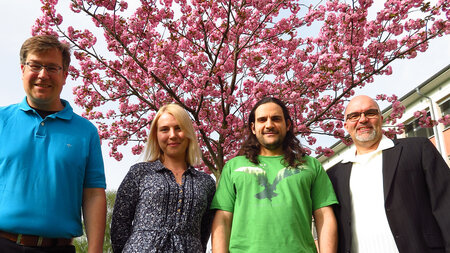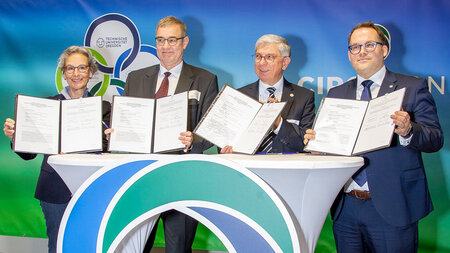Sandra Matthäus (English)
Research Interests
Social Analysis and Social Theory, Science and Technology Studies, Human-Nature-Relations
Vita
Academic Positions
- since 2019: Research Fellow, Chair of Social Theory, Sociology Department, Chemnitz University of Technology
- 2018-2019: Associate Lecturer, Humboldt University Berlin, Rostock University, Brandenburg University of Technology, i.a. Lecture on "Social Inqueality and Social Stratfication"
- 2016-2017: Research Fellow, Department of the History of Science and Science Studies, Lübeck University
- 2013-2015: Research Fellow, Sociology Department, University of Münster
- 2012-2013: Academic Leader, Lecture Series on "New Perspectives on 'The East'", Humboldt University Berlin
- 2007-2011: Student Research Fellow, Research Group "Science Policy Studies", Berlin Social Science Center
- 2005-2007: Student Research Fellow, Vice President for Research, Department Research Evalaution, Humboldt University Berlin
Academic Education
- current: PhD-Project "Self.Worth.Feelings. Towards the legitimate subject structure of (late) modernity" (working title), supervised by Prof. Dr. Andreas Reckwitz, Chair of General Sociology and Cultural Sociolgy, Humboldt University Berlin
- 2013: M.A. Social Science Studies, Humboldt University Berlin
- 2007: B.A. Social Science Studies, Humboldt University Berlin
Academic Stays Abroad
- 2015: Research Visit in preparation of PhD-project, New York City (USA)
- 2010-2011: Study of Sociology, New School for Social Research, New York City (USA)
- 2009: Research Visit as part of the Research Project "Judgement Formation within Peer Review. International Case Studies", London (UK)
- 2004-2005: Study of Sociology, University of Wales, Bangor (UK)
Memberships
- Member of the Research Network "Towards a Society of Valuation?"
- Member of the German Sociological Association, Section for Social Theory
Research Project "Disruptive Technologies"
At the center of the research project „Disruptive Technologies: A Sociological Study on the Reconfiguration Society“ are technological innovations being developed to solve fundamental social problems. The project is led by Prof. Dr. Henning Laux and funded for three years by the Fritz-Thyssen Foundation.
The project focuses on three case studies: The production of meat in laboratories (known also as „Clean Meat“, „Cultured Meat“ or „Cell-based Meat“), digital assistants using artifical intelligence (like Alexa, Siri, or Google Assistant), as well as the conservation of female egg cells (so called Social Freezing).
In contrast to other studies , we are studying these innovations not only from a technological or economic perspective, but within a broader social framework. That is to say, we are explicitly investigating the interplay of social problems, processes of technological innovation, and general economic conditions. Furthermore, we are engaging in these issues not solely from an abstract theoretical or removed hypothetical point of view. Rather we are focusing in our research design on already existing technologies including the main innovating actors, their motivations, as well as the concrete innovative work processes.
In doing so, we are aiming to better understand how technological innovations contribute to solving global as well as local, collective as well as individual problems, and, thus, possibly contribute to creating new social orders, for example regarding culture-nature-technology nexuses or (late) modern temporal relations
Sub-project "Cultured Meat"
The sub-project „Clean Meat“ focuses on the production of meat based on animal stem cells within bioreactors.
The technology aims to solve the problematic relationship between the global meat consumption and its ethically as well as ecologically harmful consequences. It does so by uncoupling meat production from industrial livestock farming and the mass slaughtering of animals on the one side, and by radically reducing the related high resource consumption in terms of land, water, and carbon dioxide on the other. The technology is still under way with a prospected marketability in the following years.
Thus, „Clean Meat“ addresses the problematic modern relationship between humans and animals as well as humans and their ecological environment more generally, which therefore constitutes the analytical focus of the sub-project. Using a state-of-the-art triangulation of research methods including ethnographical field work, discourse analysis, and expert interviews the study is aiming at understanding how the innovators attend to these problems and process their innovations through communication and interaction with society.





